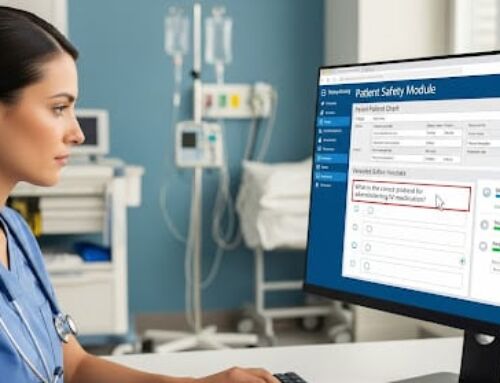
Healthcare cybersecurity incidents continue to skyrocket, with millions of patient records exposed each month. In the first half of 2024 alone, healthcare breaches listed on the Office for Civil Rights online breach portal affected 45 million patients – and that just accounts for large-scale breaches where a single incident affected 500 or more patients.
While compliant companies have mandated risk mitigation strategies, such as cybersecurity policies and employee training, these incidents still run rampant. One main reason for this is human error. 82% of failures originate from a staff member not following your control, training, or procedures. Employees are a company’s first line of defense in protecting sensitive information, and they often fall victim to ever-more-convincing phishing attacks that can lead to more significant ransomware incidents and network security failures.
Adapting and adopting more advanced evaluation tools for staff readiness is crucial to preparing your business against cyberattacks. This is where real-time AI-based tabletop exercises come in, think fire drills for your business continuity and disaster readiness programs. Cyber Fire drills have become an industry best practice for evaluating staff knowledge and recognizing and responding to potential cyber threats.
How Cyber Fire Drills Help Your Business
For example, when we were in school or taking a cruise, fire drills tested your readiness response in real-world scenarios. Today’s threats require more than just what regulations mandate. Insurance companies suggest doing “Cyber Fire Drills,” where staff are presented with an actual scenario and must respond with the best possible response to handle it. Once all staff members submit their responses, the business is evaluated and scored based on how many members selected the correct action based on the scenario.
Cyber fire drills aim to evaluate and prepare your staff to respond correctly when presented with an authentic cyber incident. Still, cyber fire drills can benefit your business in several ways.
Mitigates Cybersecurity Risk
While policies, training, and risk assessments are a good start in protecting your business against cyber threats, healthcare businesses must consider additional measures to test their cyber environment.
When you simulate real-life scenarios, employees are better prepared to respond to threats. These drills also help management identify strengths and weaknesses in security processes, allowing them to allocate resources appropriately.
Enables HIPAA Compliance
Healthcare organizations must comply with HIPAA, which requires security management processes like implementing “procedures for periodic testing and revision of contingency plans.” HIPAA also requires healthcare organizations to implement an incident response plan and to test those plans periodically.
Cyber fire drills satisfy both of these requirements. Since cyber fire drills mirror incidents that have recently occurred, there is no better way to test your current procedures and incident response plan against new threats. Understanding current threats also allows you to adapt your contingency plans as necessary.
Lowers Cyber Liability Insurance Premiums
On average, cyber liability insurance requires regular testing of your incident responce plans. When you’re a safe bet for insurance companies, your cost goes down, and when you have a history of incidents, your price can increase.
The cost of cyber liability insurance policies is greatly influenced by the likelihood that your business will file a claim. Some insurance companies also inquire whether you “periodically test your incident response plan.”
Other factors that can affect policy costs include:
- Number of employees
- Volume and type of data handled
- Type of cyber coverage you need
- Your deductible
- Policy coverage limits
Helps Vendors Sell Services
In the competitive healthcare environment, differentiating your services from the competition can go a long way toward winning a contract. Healthcare organizations have become more aware that risk doesn’t just come from their internal practices; healthcare vendors can play a big part in their overall risk management processes.
When you can prove that you have robust cybersecurity processes, such as the score you receive from running cyber fire drills, healthcare organizations can be confident that you will handle sensitive patient information with care.
Choosing the Right Cyber Fire Drill Tool
Now that you understand the benefits of cyber fire drills, choosing the right tool for your business is equally important. Key features to look for from your cyber fire drill tool include:
- A solution tailored to your business needs
- Attack simulations that mimic realistic scenarios
- Short and engaging employee testing
- Automated reports identifying strengths and weaknesses
Increase your cyber resilience with automated tabletop simulations that engage your whole company. As the fire drill market expands with new innovations, strong solutions like ChaosTrack’s AI-powered automated tabletop simulation platform raises awareness, improves coordination, finds gaps in your organization’s security posture, validates assumptions, and ultimately builds confidence. This reinvented approach ensures a streamlined, efficient, and effective method of bolstering cybersecurity readiness.








